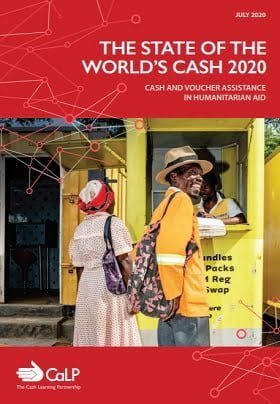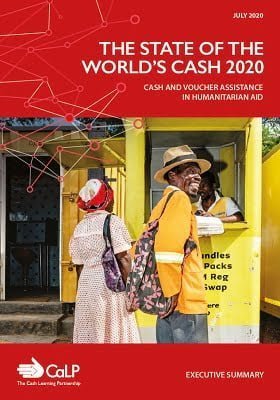State of the World’s Cash 2020 Chapter 6A: Evidence, learning & information sharing
FILLING THE EVIDENCE GAPS
CVA research and learning has moved from proof of concept to a focus on programme quality and filling evidence gaps.

![]() Lack of evidence is not generally perceived as an immediate inhibitor of quality programming, though it remains a more significant issue at sectoral level.
Lack of evidence is not generally perceived as an immediate inhibitor of quality programming, though it remains a more significant issue at sectoral level.
![]() Global clusters have made progress identifying sector-specific evidence gaps and rolling out plans to address them.
Global clusters have made progress identifying sector-specific evidence gaps and rolling out plans to address them.
![]() The evidence base on multipurpose cash has increased. Equally gender and CVA, identified as a critical evidence gap in the last report, has seen notable progress.
The evidence base on multipurpose cash has increased. Equally gender and CVA, identified as a critical evidence gap in the last report, has seen notable progress.
![]() Greater understanding of issues such as recipient choices, well-being, and outcomes is needed. In addition, there is limited research on the use of CVA in combination with other aid modalities i.e. the best use of cash and/or vouchers as part of an integrated programming approach.
Greater understanding of issues such as recipient choices, well-being, and outcomes is needed. In addition, there is limited research on the use of CVA in combination with other aid modalities i.e. the best use of cash and/or vouchers as part of an integrated programming approach.
![]() The evidence base for cost-efficiency and cost-effectiveness remains weak and fragmented, due to a lack of transparency with budget data, shared metrics, and resources.
The evidence base for cost-efficiency and cost-effectiveness remains weak and fragmented, due to a lack of transparency with budget data, shared metrics, and resources.
INFORMATION SHARING AND LEARNING
![]() There is no shortage of information being produced on CVA. There is a need to give more attention to building on findings and integrating learning mechanisms within programmes.
There is no shortage of information being produced on CVA. There is a need to give more attention to building on findings and integrating learning mechanisms within programmes.
![]() There is continuing reluctance to share findings from unsuccessful or challenging programmes, which could support sector wide learning, due to issues of funding and competition.
There is continuing reluctance to share findings from unsuccessful or challenging programmes, which could support sector wide learning, due to issues of funding and competition.
PRIORITY ACTIONS
- All humanitarian actors should ensure greater transparency, treating programme data and findings as ‘public goods’. Donors should not penalize agencies for being open about failures.
- All humanitarian actors should increase efforts to understand what influences the outcomes of CVA for recipients, and make systematic use of recipient perspectives in programme design.
- Relevant humanitarian actors should collaborate to undertake systematic analyses of perceived evidence gaps and identify which are critical to improving the quality of programming.
- Relevant humanitarian actors should develop practical syntheses of evidence, collate learning from different contexts and explore evidence beyond the humanitarian sector.
- Humanitarian organisations, donors and researchers should improve collaboration and coordination of research and the application of learning, building on existing platforms.
- All humanitarian actors should ensure that evidence is used to inform programme design.
Project leads
Further reading

The State of the World’s Cash 2020 – Full report
Report
Since the first State of the World’s Cash report we have seen huge developments in cash and voucher assistance (CVA), with a continued increase in scale driving changing roles and partnerships, and a growing emphasis on quality. This new report, State of the World’s Cash 2020, examines progress, changes, and challenges in the use of CVA within the rapidly shifting humanitarian landscape...

The State of the World’s Cash 2020 – Executive summary
Report
The State of the World’s Cash 2020 provides a comprehensive snapshot of cash and voucher assistance (CVA), with significant recommendations for anyone interested in humanitarian action. This report follows on from the first report, a seminal piece, published in 2018. Since then CVA has continued to grow and is now a major part of almost every humanitarian response. The total amount of CVA...



